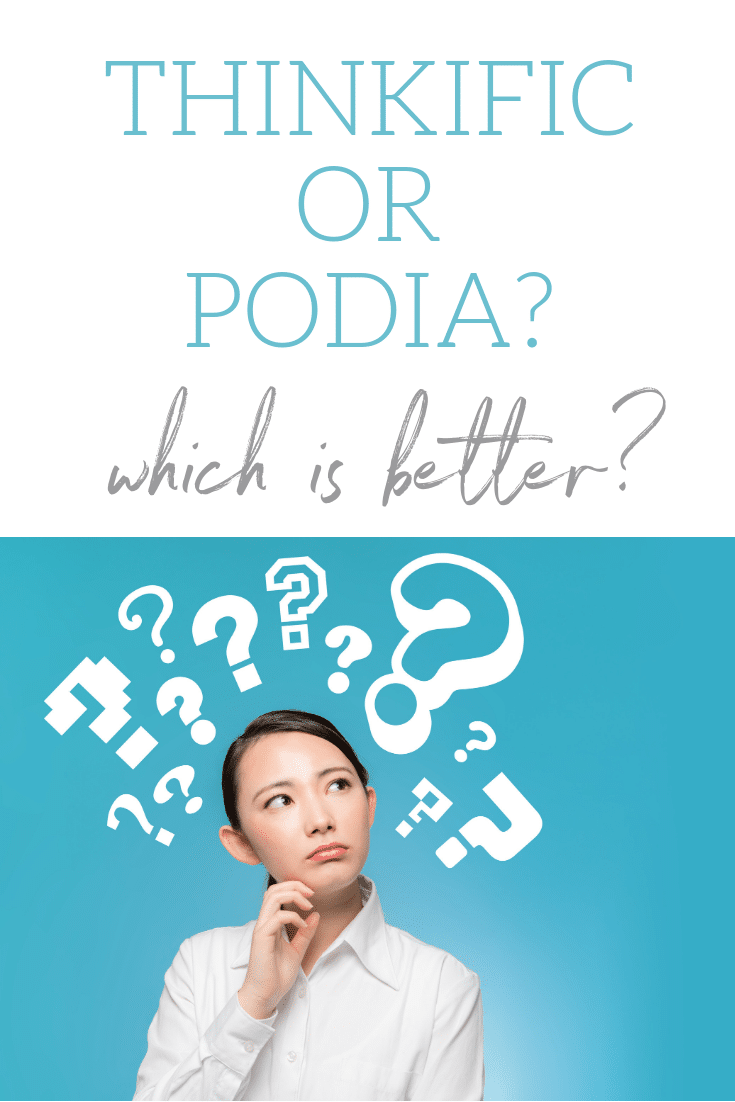My Anxiety Attack
An essay about learning to take my own medicine.
By Becky Mollenkamp, PCC
Last month, I launched Feminist Founders podcast. The release followed 9 months of dreaming, planning, recording, editing, and managing roughly 1,000 tiny details (and detail work is particularly draining for me as it’s not my strong suit).
The podcast is a labor of love. While I hope it brings prospective clients into my orbit, I’m not being paid for the hundreds of hours I’ve spent making it.
Money is an important part of this story. My income is down significantly this year due, in large part, to me pursuing something deeply meaningful.
My income matters because, as a public school educator, my husband’s earning potential is basically fixed. With a lot of large, unexpected expenses this year, it’s up to me to cover the difference.
I’ve self-managed Generalized Anxiety Disorder my entire adult life (probably my entire life, though it wasn’t diagnosed until my mid-20s). That means I live with a hum of worry at all times.
Over the course of this year, the hum grew louder and more forceful. It began to manifest physically in the form of TMJ, back pain, headaches, GI issues, sleeping difficulties, lightheadedness, and heart palpitations.
I did a lot of deep breathing to calm my nervous system. I didn’t work at night or on weekends. I gave up caffeine.
I did what usually helps me with anxiety, yet the hum intensified.
The first two weeks of September, I was in promotion mode for the podcast, which meant talking about myself and my work far more than usual.
I’m an INJF and Enneagram 6. In short, I’m highly sensitive, very insecure, and deeply introverted. That particular cocktail mix of traits doesn’t lend itself well to being in the spotlight.
I’ve learned how to wear a confident and outgoing mask. But that mask is heavy, and wearing it for too long is exhausting.
I hosted a live launch party with 50 people, did eight live social media chats, and shared dozens of social media posts in one week.
That was the straw that broke the camel’s back, but it was preceded by extra work over many months while also parenting and feeling deep financial stress about not contributing at the level that I have for my entire adult life.
Every day for at least three months, the voice of my anxiety said with disgust, “You’re failing. At everything. Pathetic.” That will eventually break anyone.
* * *
On Sept. 14th, after another day of promotions and holding space for others, my body quit.
I knew I wasn’t good, but I thought I could tough it out like I always do. I asked my husband to pick our son up from school so I could take a warm shower. It wasn’t enough.
The hum escalated to a fever-pitched scream.
I laid down in bed, closed my eyes, placed my hands over my heart, and reassured myself that I was safe.
In the silence of that moment, I confronted the truth—I couldn’t do this alone. I needed to really take care of myself, and doing that required help.
I asked my husband to come talk to me. I broke down in tears as I told him how I was feeling, and asked him to take on all household and parenting tasks that evening so that I could lie there without guilt.
He held my hand, thanked me for asking for help, promised to handle everything, and assured me that he wouldn’t hold this against me. In fact, he was proud of me.
By morning, I felt much better. Just coming clean with my husband lifted a surprising amount of the heavy weight.
The next day, I made an appointment to talk to my doctor about medical intervention, and I started Lexapro within a week of the anxiety attack.
I also opened up to and asked for support from my business besties. Those frank and loving conversations helped me put out a new offer that brought in some much-needed income. I also released some tasks to reduce overwhelm.
It’s been nearly six weeks since my wake-up call, and I’m happy to report that the hum is settling into a whisper. It’s still there (and may always be), but it’s less intrusive and far more manageable.
* * *
Asking for help is so freaking difficult that it took a near breakdown to make me do it. I had to (and continue to) wrestle with feelings of failure.
Logically, I understand that getting medicine for an anxiety disorder is a good thing, not failure. Emotionally, however, it’s harder to accept.
I’ve had peers struggle to understand this disconnect. After all, I have a high EQ, have done a lot of personal development work, and coach others who deal with similar issues.
Like everyone else, societal conditioning and my childhood inform how I show up today. Knowing something isn’t always enough to combat deeply engrained stories.
I come from a long line of women who sacrificed their own needs to do everything and care for everyone. Sexist conditioning reaffirmed the moral imperative to be a “Superwoman” who can do and have it all.
Also, my mother and brother were emotionally fragile. As a child, I frequently had to pick up their pieces and help put them back together. It was exhausting and unfair, and I swore I’d never do that to anyone else.
Last month, I felt emotionally fragile and unable to “hack it.” That’s an especially triggering combo for me.
I get pride from guiding others through the labyrinth of releasing harmful conditioning to become self-nurturing warriors. Yet, there I was, “failing” to do the same for myself.
Seeking medical help and embracing anti-anxiety medication felt like a defeat, a betrayal of my own teachings. I was forced to confront my own prejudices about mental health, acknowledging that needing help didn’t diminish my worth nor did it mean that I would repeat the patterns I experienced as a child.
* * *
Last week, a client asked if I planned to share more about this experience. I had already started writing this essay, but her question pushed me to finish it.
The truth is, part of me wanted to keep this under wraps.
The familiar voice of anxiety chided me with, “how can you claim to help others grow their businesses without burnout if you can’t manage your own mindset?”
Of course, that’s unfair.
First, it’s easier to help others than yourself, and I’m not an exception to that rule.
Second, in my case, anxiety isn’t an occasional feeling, it’s a disorder. It’s chronic, acute, and debilitating. I can’t just “mindset” my way out of it.
Third, I’m not perfect; no one is. The idea that I need to have everything figured out before I can coach others is a form of perfectionism. And that is white supremacy culture rearing its ugly head.
Finally, I know that sharing my story can help others. I know this because I’ve shared many other deeply personal aspects of my life (like this and this) and have heard firsthand the profound impact it has had on others.
* * *
One in five American adults experiences a mental illness in their lifetime, and major depression and anxiety disorders are the most common. But more than half won’t receive help, often due to the stigma and discrimination of people with mental illness.
Many folks reading this will likely relate to my story. They’ve experienced anxiety, depression, or another issue of mental health, and maybe they’ve also resisted asking for help. Perhaps they’re still resisting.
There’s so much freedom in knowing that they aren’t the only one struggling.
My doctor gave me the this same gift. When I cried in her office about going on Lexapro, she said she felt the same way before going on Lexapro herself. It validated my feelings and normalized asking for help.
Also, there will be many who can relate to feeling like a fraud when you personally struggle with something inside your professional wheelhouse. “I should know/do better, so who am I to help others?!”
I eat, breathe, teach deconstructing societal conditioning—and even so, it sometimes gets the best of me, too. That doesn’t mean I’m a failure or a fraud. It means I’m human. And so are you. We must stop pathologizing this very normal experience.
My struggles don’t diminish my ability to coach. Quite the contrary. They help me better understand those I serve. They make me a better coach.
Similarly, publicly sharing allows me to serve in another way.
It also helps me to call in the right kinds of clients (those who see themselves in my story, and who trust someone with my values set) and repel misaligned folks.
The same is likely true for you, friend.
Despite everything I just said, I am nonetheless nerv-cited to put this out in the world. It’s scary to lay yourself bare before others, including complete strangers. The anxious voice has plenty of critical shit to say.
And yet, I am more convicted to share because I truly believe these are the sorts of stories that make the most difference in the world (far more than any listicle or business-strategy post ever could).
I’ll leave you with two paragraphs that Chat GPT wrote for me, and that I was surprised to actually love:
My story is a testament to imperfection, a celebration of vulnerability, and a reminder that it’s okay to ask for help. I want you to know me not as an infallible authority, but as a fellow traveler, a kindred spirit who understands the weight of conditioning and the courage it takes to defy it.
As you read these words, I hope you find solace in knowing that you are not alone. We journey together, bound by our shared humanity, our struggles, and our triumphs. Let us embrace our imperfections and, in doing so, unlock the door to radical acceptance, self-compassion, and the boundless strength that resides within us all.



